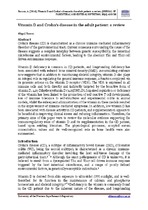Vitamin D and Crohn’s disease in the adult patient: a review
Abstract
Crohn’s disease (CD) is characterized as a chronic immune-mediated inflammatory disorder of the gastrointestinal tract. Current consensus surrounding the cause of the disease suggests a complex interplay between genetic susceptibility, the intestinal microbiome and environmental factors, leading to the aberrant Th1 and Th17 cell driven autoimmune response. Vitamin D deficiency is common in CD patients, and longstanding deficiency has been associated with reduced bone mineral density (BMD). Accumulating evidence now suggests that in addition to maintaining skeletal integrity, vitamin D also plays an integral role in regulating the general immune response, a function employed via its genomic actions on the vitamin D receptor (VDR). The VDR is expressed in all immune cells and both directly and indirectly targeted by the bioactive form of vitamin D, 1,25-Dihydroxyvitamin D (1,25[OH]₂D). Impaired regulation or deficiency of the vitamin has been linked to the promotion of self-reactive T cell development, loss of immune tolerance to self-structures and experimental colitis in animal models, whilst the subsequent administration of the vitamin in these models resulted in the improvement of immune-mediated symptoms. In addition, low vitamin D has been associated with disease activity in CD patients, and supplementation appears to be beneficial in improving clinical scores and reducing inflammation. Therefore, the primary aims of this paper were to review the molecular evidence supporting the immunoregulatory roles of vitamin D and its supplementation in the CD patient, based upon existing literature. The physiological processes, accepted serum concentration values and its well-recognized role in bone health were also summarized.

